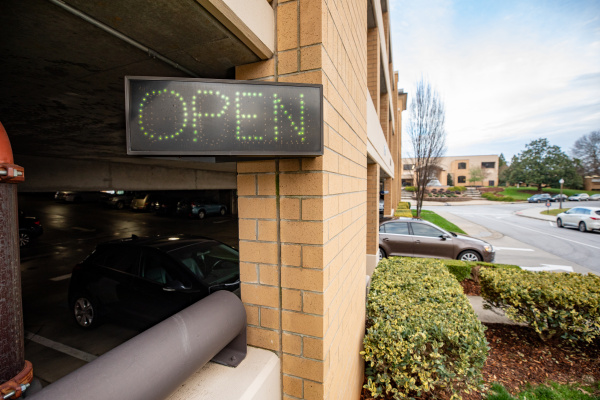On Oct. 23–24, the competitive computer programming team of Elias Watson, Erick Ross and Steven Platt placed first in the Southeast region, second in the U.S. and 59th overall in the IEEEXtreme 14.0 24-hour programming competition.
See Also: Programming Team Places 2nd Nationally
Though some teams are tempted to compete straight through the 24 hours, Watson said he’s learned better. “Working on the competition all 24 hours is not beneficial,” he said. “You need time to go to sleep and take your mind off things because there were problems where we were looking at it for a good two hours, had no idea how to solve it, and then we came back the next morning and knew what to do already.”
Taking the time to rest paid off. “This year’s (59th place) overall is our second-best overall finish, and our finishing second in the USA is our best showing at the country level,” said Dr. Jim Knisely, the team’s faculty advisor and head of the Department of Computer Science.
The rest was also needed as Platt was in quarantine with COVID-19. In order to overcome the obstacle, the team communicated via video chat and phone calls. “My role in this contest was definitely more debugging,” said Platt. “Each contest is slightly different in the types of questions that are asked. And so (at each competition, we figure) out how to work with (that competition’s problems). So, in this one, there were more problems that I was unable to solve, but I was able to go back and find some issues with some of the other guys’ code, and that was actually better because I was in isolation. I didn’t have any of the ideas that they had because they were in their room. They knew what they were doing. I didn’t. So, I could come in completely fresh.”
Sharpening Skills
Communication, whether in person or virtual, is a key component of programming competitions for this team. “The entire programming competition experience has taught me just how vital communication is,” said Platt. “You don’t know it all, but even just getting a word of support from others is just really vital.”
Ross agreed. “It’s helpful to talk about your ideas. I think I called Steven during the contest and asked about (a problem),” he said. “Just getting a new set of eyes to think of it from a different perspective, that’s helpful.”
Watson found his time on the team has helped him learn “how to read something technical, documentation that’s relatively complex, and quickly determine how difficult it would be to do. Because at the beginning of the competition you want to solve all the easy problems first, and so you need to skim through, figure out how hard each one you think is, and then go from there. That would be helpful later on in the business world because when someone approaches you with a problem, you want to be able to give them an answer quickly on whether or not that would be feasible.”
All three agreed being on the team has helped them learn how to problem solve. “You start to see patterns … that you hadn’t seen before,” said Watson.
Looking to the Future
Being a part of one of BJU’s competitive programming teams has been more than a hobby for Ross, Platt and Watson. Ross, a junior mathematics student, was offered a summer internship after winning a competition sponsored by local computer science companies in March 2020.
“Even as a (senior) computer engineering major, I still can get intimidated by code,” said Platt. “So just having something where you’re approaching it constantly has kind of improved that intimidation factor.” He was able to use that skill in his off-campus job when asked to build an app. “I work at a job off campus that’s working on a self-driving lawn mower, and my employer heard that in a previous computer class we built a mobile app. Normally I would say I have no idea how to do that.” Instead, Platt was able to rely on the problem-solving skills and resourcefulness he’d learned from competitive programming. “The crazy side of me (was) like, Oh, wait. I’ve done this before, and I can contact the professors.” His answer to his boss became, “Yes!”
Watson, a senior computer science student, said the competitions are good practice for the future. “A lot of the techniques that you have to use in these competitions are very common problems in computer science, and so you’re bound to run into the same problem later on in your career,” he said.
Said Platt: “(Being on the team) really is less about the programming and more just how you approach problems. So it really goes beyond just, Oh, we’ve got this technical problem. It’s, Alright, in life there will be problems. How are you going to approach these problems? What tools can you bring along to help solve some of those problems? It’s been more of a life experience than anything.”








